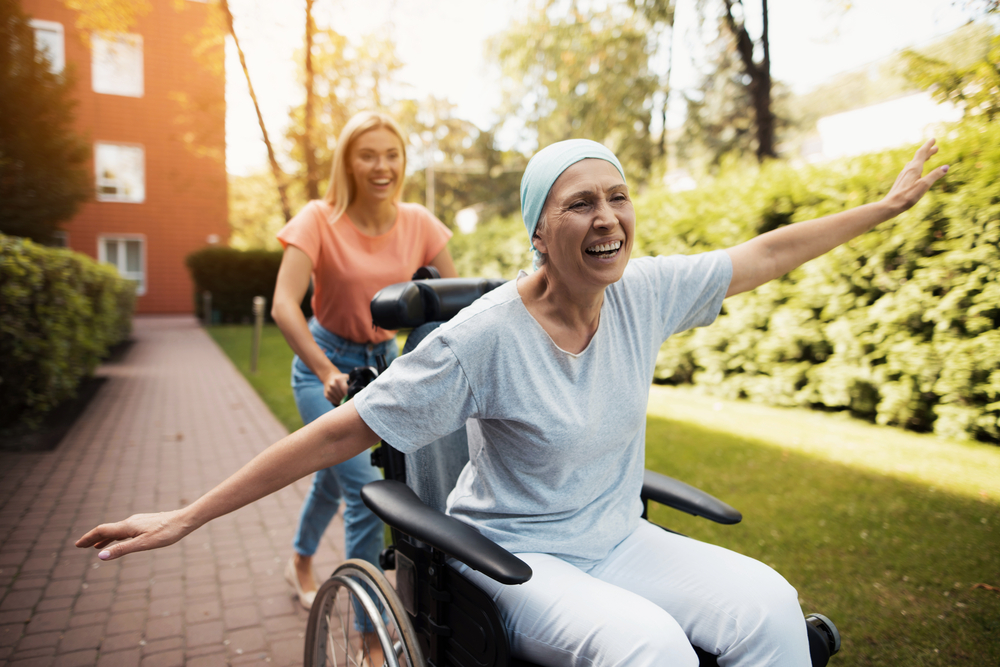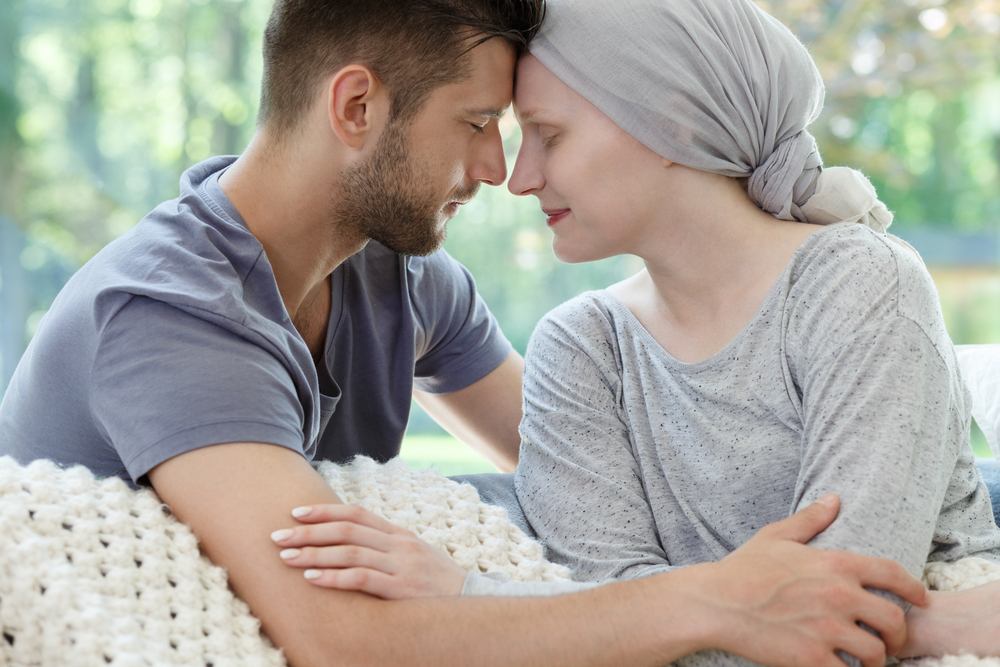by Susannah Wollman
Congratulations! You’re a survivor! You fought the hard fight and came out victorious. Now what?
Post-treatment life
You’ve patiently sat through the chemo and radiation treatments and finally reached the last one.

“Yay!” you think. “It’s over.” Is that you? Unfortunately, the last treatment doesn’t signal the end of breast cancer as far as you are concerned. You can return to a “normal life” now, but the big question is: what’s normal?
Your New Normal
Has your whole life changed? Well, yes and no. As you make the transition from patient to survivor, you will find that much of what was normal in the past is still possible for your future life. But in many ways, you will also have to change some things to accommodate the “new normal.” You’ll start looking at your relationships, eating habits, and exercise with new eyes. Even if your family and friends expect you to “move on” once your treatments end, the reality is that depending upon the characteristics of your breast cancer and treatments you may need treatments of some kind for a year or longer. If you have survived metastatic or stage IV breast cancer, you will need treatment for the rest of your life.

Side effects of cancer treatment
On the physical side, you may experience long-term effects such as fatigue, neuropathy (tingling and numbness in the hands and feet), pain, tightness, skin changes, menopausal symptoms, and more.
On the emotional and mental side, anxiety about or fear of recurrence, relationship changes, “chemobrain” and other effects can change the life you thought would return to “normalcy.” Your family and friends may think that because you have finished treatments you are “cured,” and it will be as if you never had cancer. The meds you take after cancer can have side effects, too, and you may have to take them for years. Your body is not exactly like anyone else’s body, so how yours responds to treatment may be different than another survivor’s even if you are taking the same after-treatment.
According to oncologist Marisa Weiss, MD, founder of Breastcancer.org and author of Living Beyond Breast Cancer, “Your body had just been through an enormous assault, and recovery is a huge thing. You’re not going to just bounce back right away.”
Mental changes including memory deficits and the ability to focus—dubbed “chemobrain” by some survivors are huge hurdles women recovering from breast cancer face. Another mountain you have to climb is chronic fatigue. Not exactly helpful when your life is busy managing a career and/or caring for your family.
Because so many more people are surviving cancer so much longer, some hospitals are opening entire departments to study and aid survivors. The National Cancer Institute has a video that shows women’s surprise and frustration about survivorship called After Treatment Ends. A short video, it provides a launching place from which survivors can learn the myriad details of changes in thinking and choices you’ll have to face.
Emotional Recovery
Mental and emotional recovery is the most difficult part of their new normal for many women. Here are some tips to help you on this leg of your journey.
- Stay informed.
Studies have shown that people who stay well informed about their illness and treatment are more likely to follow the doctors’ wellness plans for them. Generally, they tend to recover more quickly than those who do not keep informed. - Express your feelings.
Feelings of fear, anger, and sadness are not unusual. Those who can share those feelings with someone else are more easily able to release those strong feelings. If you don’t want to share your emotions with friends, a cancer doctor, or a counselor, you don’t have to. Sort out those feelings by writing them down. - Develop a positive attitude.
Of course, having a good attitude doesn’t mean you’re just hiding your feelings. No one can feel positive all the time, but looking for the good even in bad situations can help you focus your energy on staying as healthy as possible. - Work toward relaxing.
Many people find working out or going for a walk or a swim helps defeat negative feelings. Listen to music or read a good book. Take up a hobby or craft. - Keep active.
Join a volunteer group or find other activities that you enjoy that are not too taxing on your body. Getting together with good friends can help you focus on something besides cancer. - Control the things you can, let the rest go.
Putting your life in order can help you feel less fearful. You are your best advocate, so be involved in your health care. Keep your appointments and make necessary changes in your lifestyle. Starting a journal or keeping a daily calendar can give you more control. - Cultivate gratefulness.
The Greater Good Science Center at UC Berkley has published a white paper detailing its studies on the benefits of gratitude.
Coping with physical changes
Short-term body changes may be frustrating, but eventually, you will recover from them. Others may last the rest of your life. Whatever your case, how you look after cancer treatment may be a big concern for you.
- Your skin may have changed color after radiation.
Don’t ignore it and think “this is the way it will be for me from now on.” Ask your doctor or nurse how to care for your skin and if time will change the color. - Find ways to become “the new you.”
Get a lift from a new hairstyle or color, new makeup, or new clothing. All these things make women feel more positive. - Make sure your prosthesis (breast form) fits well.
If you have chosen a prosthesis rather than reconstruction, a good fit is very important for making you feel good about your looks. Insurance may pay for it. - Realize that you had cancer but cancer doesn’t define who you are.
You have intrinsic value no matter what happens to you or how you look. Cultivate activities that give you a sense of self-worth. - Take time to grieve.
You have suffered loss and mourning those losses is not only okay, it’s healthy for you, too. - Take stock of how cancer has made you stronger.
You’re a survivor! Your bout with cancer has strengthened you and made you wiser and more realistic. Share the new you with other women who are struggling with cancer. Be the light that gives them hope!
Resources:
BreastCancer.org
The Greater Good Science Center at UC Berkeley


